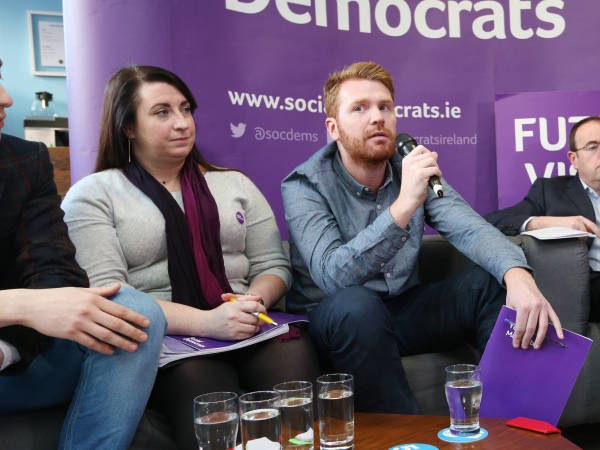
Rises to the student contribution charge, despite the Labour party’s 2011 manifesto commitment to keeping it at the original rate of €1500, and the housing crisis, which saw as many as 25,000 student bed place requests unfulfilled in 2014 according to the HEA report, has left many students disillusioned with the current government.
Speaking to the Irish Times, Dublin Mid-West candidate Anne Marie McNally cited the number of graduates living at home with their parents to further illustrate the impact of accommodation shortages on Ireland’s younger demographic. She added that many of her canvassers, who have an average age of 26, came forward through social media and university groups to push for a vote for the Social Democrats.
The Irish Times also reported that Dunlin Central candidate Gary Gannon, himself a graduate of Trinity college’s access program, criticised the lack of Student Universal Support Ireland (SUSI) grants received by residents of Dublin Central, despite being one of the most deprived constituencies.
Mr Gannon is also reported as praising university access programs which “have a proven track record in widening demographic access to university education”.
The general election manifesto of the Social Democrats, available on their website, commits the party to “reforming the maintenance grants scheme to provide better targeting of supports”, if elected.
According to a poll carried out by Trinity News prior to the student union elections, as many as 10% of Trinity voters hoped to vote for the Social Democrats, with a further 10% voting for independents. However, at 22%, the largest proportion hopes to vote for Fine Gael, who propose the introduction of an income-contingent student loan scheme.
Previous figures released by the Higher Education Authority (HEA) highlighted Trinity as having the lowest number of students in receipt of the SUSI grant nationally. The HEA stated 24% of students in Trinity are in receipt of the grant compared to the national average of 36%
Speaking to Trinity News regarding these figures, Cliona Hannon, Director of the Trinity Access Programme (TAP), previously commented that both Trinity and UCD are in many ways “local universities” for students from South Dublin, which has the highest concentration of private schools in the country, meaning they will attract students from that background.
Speaking to Trinity News with regard to the low portion of Trinity students availing of grants, Trinity Social Democrats noted that “this is an issue of educational inequality that cannot be ignored”. “Progression rates to third-level [institutions] – and in particular to Trinity – from areas such as Dublin Central, are some of the lowest in the country. We think that this highlights the fundamental need for reform.”
Other areas highlighted at the launch by fellow Dublin Central candidate Glenna Lynch were the Social Democrats commitment to repeal the eight amendment, climate change, and the large amount of young people for whom; “Owning a house is an aspiration rather than an achievable dream.”
The party also committed to the introduction of a living wage and banning zero-hour contracts.






